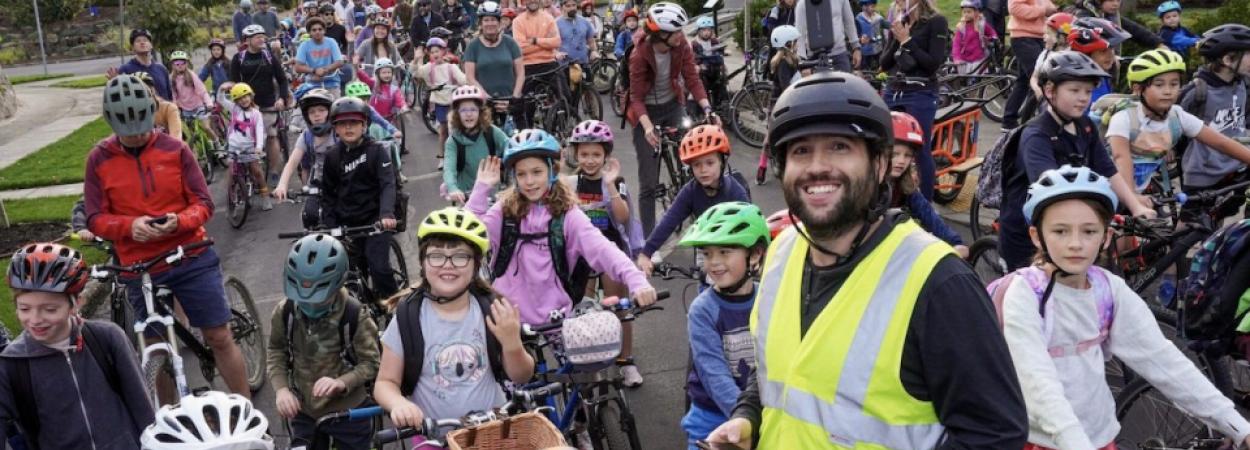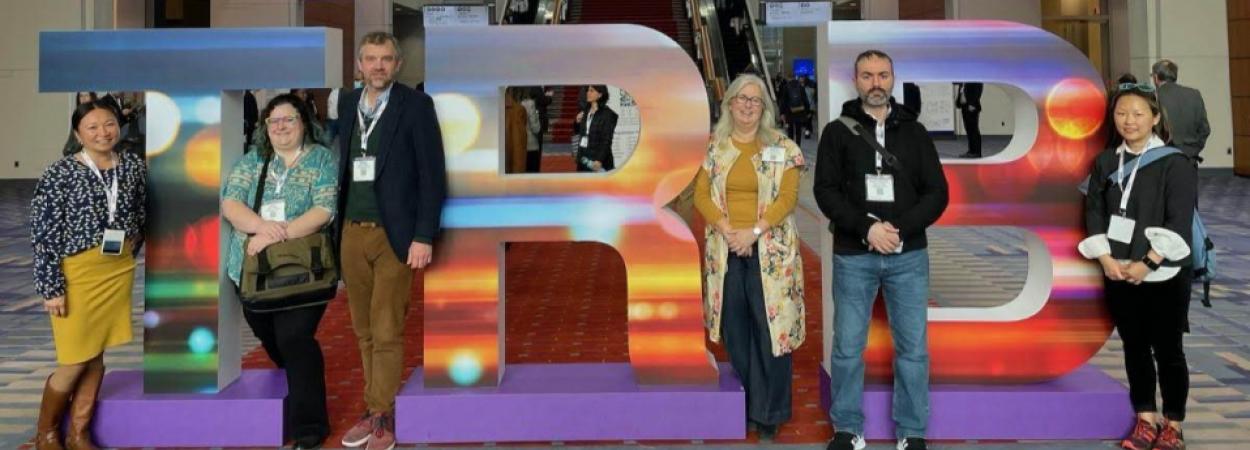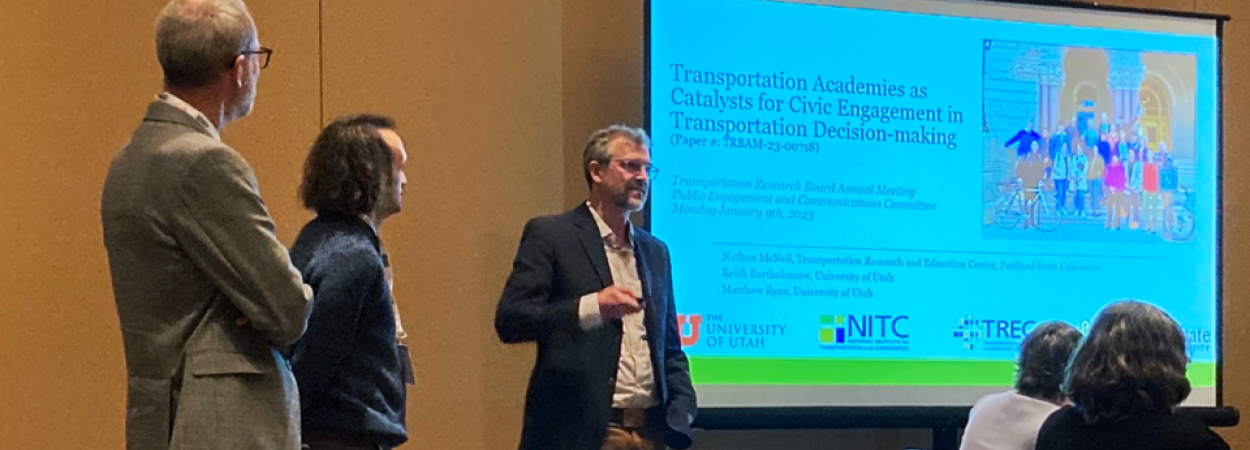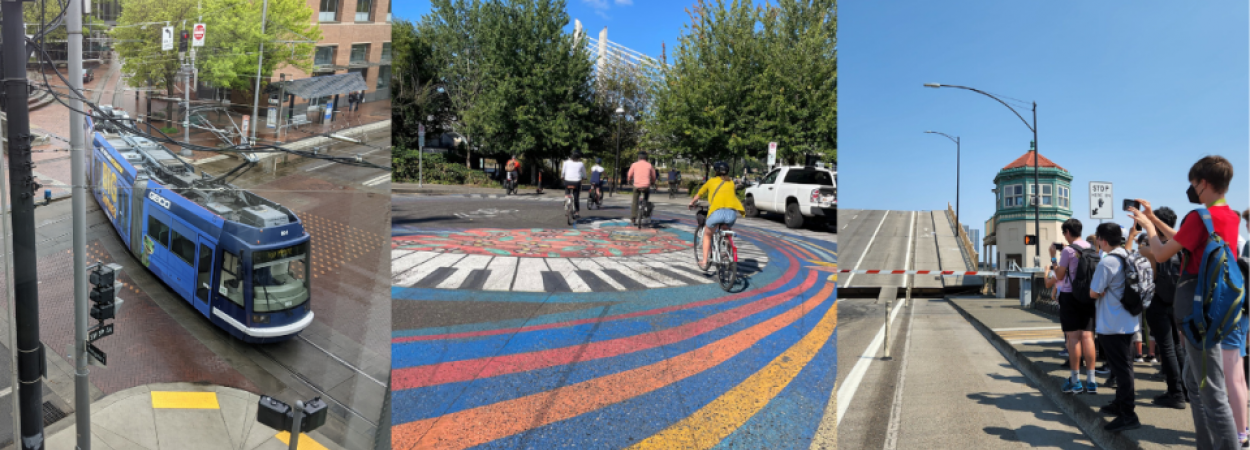 |  |  |

The trip to and from school is made by nearly every child in Oregon every school day. Bike and walk buses, organized groups of school children, parents, and ride/walk leaders, seek to encourage biking and walking to school. A new research project at Portland State University's Transportation Research and Education Center (TREC) will gather information on bike buses nationwide, inspired by the success of Sam Balto's bike bus initiative at Alameda Elementary School in Portland, Oregon.
Balto, a physical education teacher, catapulted into the limelight in 2022 after establishing a weekly bike bus involving over 100 students commuting to school on two wheels. Its success and popularity prompted a broader initiative to understand and promote the benefits of bike and walk b…
Read More
A team of students in Portland State University's Master of Urban & Regional Planning (MURP) program has won an award from the Council of University Transportation Centers (CUTC). CUTC presents its National Student Awards at the annual meeting of the Transportation Research Board (TRB), which takes place next week in Washington D.C. This year is the first year that CUTC has included an award category for group projects, and the PSU team is the first to win the new CUTC Graduate-Level Student Group Award.
Team members Owen Christofferson, Sara Goldstein, Nick Hadfield, Zhouheng (Brian) Liu, Jenny Mazzella and Victoria Young won the award for the MURP workshop project, Nixyáawii Watikš.
The student team partnered with the planning office of the Confederated Tribes of the Umatilla Indian Reservation to plan a multi-use trail to improve walkability and connectivity in the…
Read More
The 103rd annual meeting of the Transportation Research Board (TRB) will be held January 7–11, 2024 in Washington, D.C., and Portland State University transportation faculty and researchers will be sharing their expertise in 15 sessions at the world's largest transportation conference. The TRB annual meeting attracts thousands of transportation professionals from around the globe to address transportation policy, practice, and plans for the future.
Sunday, January 7 - Bicycle and Pedestrian Data Fusion: Learning from Each Other
Sirisha Kothuri of Portland State University will present in this workshop, sharing "Exploring Data Fusion Techniques to…
Read More
Nathan McNeil, a Research Associate at PSU's Transportation Research and Education Center (TREC), and co-authors Keith Bartholomew and Matt Ryan (University of Utah), have been selected for a Charley V. Wootan Award for their paper "Transportation Academies as Catalysts for Civic Engagement in Transportation Decision-making." They will be presented with the award in January at the annual meeting of the Transportation Research Board (TRB).
The paper, published in Transportation Research Record (TRR): The Journal of the Transportation Research Board, draws on findings from a project funded by the National Institute for Transportation and Communities (NITC), with additional support from Salt Lake City Transportation Division; Wasatch Front Regional Council; Utah Department of Transportation; Utah Transit Authority; University of Utah; Salt Lake County, Regional Planning and…
Read More
It has been a record-breaking year in research for Portland State University, and transportation research at the university is also on a roll. As 2023 wraps up we're taking a moment to look back at all the new transportation research and education projects awarded at PSU in the past year. Browse the list of projects below, and follow the links to learn more about these and other initiatives supported by PSU's Transportation Research and Education Center (TREC).
The Pacific Northwest Transportation Consortium (PacTrans) is the Regional University Transportation Center (UTC) for Federal Region 10. As a result of a recent federal competition, Portland State University is now part of PacTrans, which is based at the University of Washington. Being a part of th…
Read More